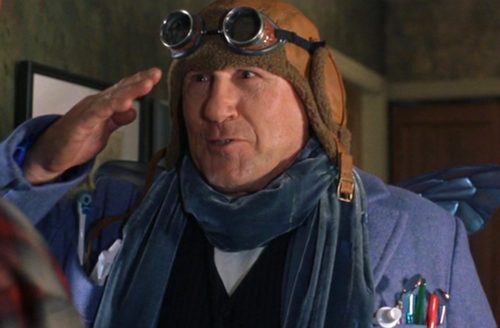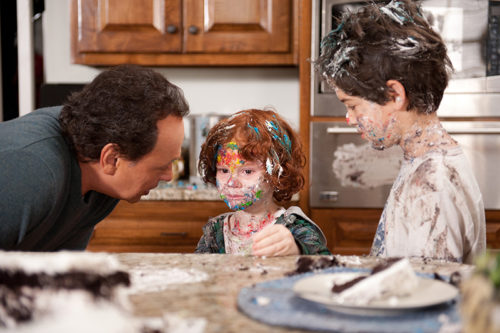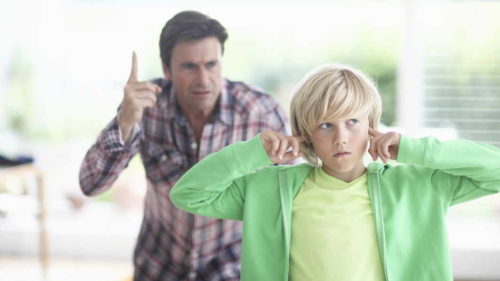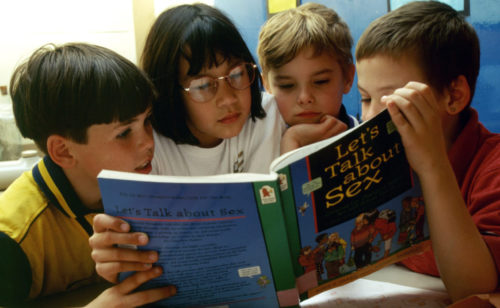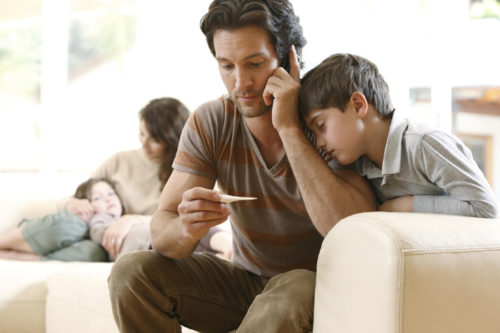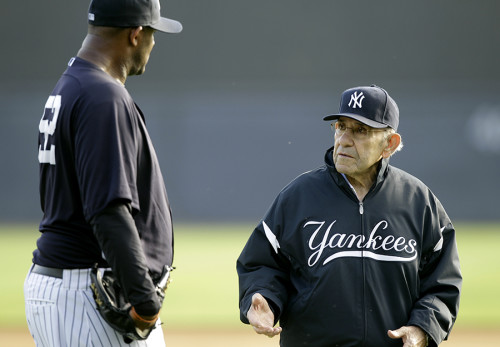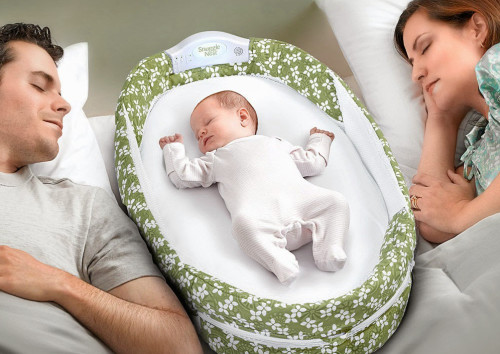Dr. Troxel is the mother of a teen who she claims needs extraordinary measures to awaken for the early start times of their school district. And it’s not due to Snapchat, social life or hormones she says; but rather: public school policy!
School Start Times
When is too early and why it matters
Wendy Troxel is not only a mother of a teen but is a fairly renowned sleep researcher and explains that “teens don’t get enough sleep” and that “early school district start times deprive adolescents of sleep during the time of their lives when they need it most.”
Being a Senior Behavioral and Social Scientist at RAND and Adjunct Professor of Psychiatry and Psychology at the University of Pittsburgh she should know. Much of her research is funded by the National Heart-Lung institute, the NIH and the DOD and focuses on the interface between sleep, social environment and health as well as its implications for public policy.
The bottom line: “school start-times for teens should not be before 8:30 AM.” What time does your teen need to report to school?
Even though I’ve never met him, my brother from another mother Dr. Greg Barrett beat me yet again to writing another parenting article and literally took the words right out of my mouth: Telling truth or lies to children—being honest with your children.
So much so it’s going to be hard giving you my personal take on this important part of parenting without feeling like I’m just repeating what he said: whether or not to tell the truth or lie to your children.
Read more →
I got a kick discovering an “atlas” of parenting and discipline types (according to Laura Hamilton at UC-Merced CA) who tallied three categories: Bystander parents with limited kid contact; Paramedics swooping in for major problems; and, Helicopters always hovering all the time.
I say a kick because although entertainingly descriptive (and perhaps embarrassingly accurate to a degree) it just seems to leave a WHOLE LOT out of the equation—and ignore half of it entirely: the kid!
Read more →
“Discipline,” that’s a 200-pound-gorilla-in-the-room topic if I ever heard one!
These days the so-called “do-gooders,” “haters” and “conspiracy theorists” all over the internet have made poor parents fear even the word “discipline”… let alone actually giving it to their child. But “discipline” is different than “punishment” you know.
Read more →
It seems that talking about puberty and sex is one of most every doctor’s LEAST favorite tasks. I know that because some research projects have studied the subject in patients of all ages with diseases of all types and by doctors of all specialties.
Well, it shouldn’t really surprise any of you because it’s your least favorite talk with your kids too (assuming you’re a parent)—and they’re YOUR kids.
Read more →
High Expectations and Micromanaging
NOT how to raise an adult
The dean of freshmen at Stanford, Julie Lythcott-Haims, will tell you about her discoveries regarding helicopter parenting based on her experiences with students and her two teenage sons.
“By loading kids with high expectations and micromanaging their lives at every turn, parents aren’t actually helping,” she observes with passion and wry humor. She asks parents to “stop defining their children’s success via grades and test scores.” Instead, she says, “they should focus on providing the oldest idea of all: unconditional love.”
We called it “over-coercion” when I studied psychology in school–it’s the same thing with the same results no matter what you call it and when it occurs and often leaves a fledgling adult wondering “Will this life ever turn out to be worth it?”
It’s as if parents are just afraid they (the kids) won’t have a future they can brag about to their friends and put stickers on the car bumpers about. Sort of: “hey kid, I don’t think you can achieve any of this without me.”
From her talk:
When we treat grades and scores and accolades and awards as a purpose of childhood all in furtherance of some hoped for admissions to a tiny number of collages or an entrance to a small number of careers—and even though we might help them achieve some short term wins by over helping—all of this comes at a long term cost of sense of self.
We should be far more concerned that they have the mind-set, the skill-set, the “well”-ness [and I add the “will”-ness] to be successful wherever they go.
Our kids need us to be a little less obsessed with grades and scores and a whole lot more interested in childhood providing a foundation for their success—built on things like: love… and chores.
The longest longitudinal study of humans ever conducted (called the Harvard grant study) found that professional success in life (what we want) comes from having done chores as a kid – and the earlier you started the better. That a roll up your sleeves and pitch in mind-set—a mind set that there’s some unpleasant work, someone’s gotta do it, it might as well be me— a mindset that says I will contribute my effort to the betterment of the whole – is what gets you ahead in the work place.
Happiness in life comes from Love – not from love of work – love of humans. Childhood need to teach our kids love in all aspects. They need to matter to us as humans – not because of their GPAs –
“I was treating my little Saywer and Avery like little Bonsai trees. But I’ve come to realize, after working with 1000s of other peoples kids, that my kids aren’t Bonsai trees, they’re wildflowers—of an unknown genus and species and it’s my job to provide a nourishing environment to strengthen them through chores and to love them so that they can love back — and to support them to become their glorious selves.”
[Site no longer active] Give anyone older than about 40 enough of an opening to explain the difference between what kids experience today and what they experienced back then – they’ll NOT be a loss for words. Perhaps about an hours worth, if they’re in a hurry to get somewhere.
In the form of a tennis match, Ms. “Lucky Orange Pants,” as she refers to herself, lists six surprising “sets” of differences – all leading to “game, set match.” [Parental warning: some needless profanity]
[Link/Site no longer active]
I spend a lot of time writing about and explaining illness; while assuming you know about “bugs” and “viruses” and “Immunity” and “baby shots” (in quotation marks because they are “general” vague terms). Kids get sick, get better, get sick, get better and get sick again. How much is too much?
Read more →
I’m going to take a stab at a posting about another doctor’s observations which seem to have struck me strongly enough that they’ve captured much of my mental “wait cycles” over the past week. You know, the “cycles” of your fast mental computer where it’s “waiting” for other things to “catch up” so it can move on.
Some people call it “time-sharing your brain” others just “day dreaming.”
Read more →
We’re talking here about parents getting a good night’s sleep and we’ve already laid some extensive background in part one and discussed that good infant sleep IS possible but doesn’t come “naturally” by any means. Pretty much, by the time you’ve figured how to do it easily you’re done with having kids.
Additionally, part of that learning is coming to an awareness of how “touchy” Read more→
I’m afraid that all the things I know about the topic “sleep problems in infants” rattle around in my brain in a fairly “jumbled” manner. Frankly, the topic of infant sleep is probably the most frequently asked group of questions from new parents and in the “top 3” for all parents; but still….
The reason it’s so “jumbled” is FIRST Read more→
As I’ve been clearing out my “to do” file of articles, we’ve had a series of posts about parenting teens through puberty and preparing for the skill-set and tasks of adulthood. Pediatricians are in a position to have many opportunities to talk to teens about life issues and I’m thinking that perhaps you’d like to see some “bullet points” of common issues we address.
Read more→
:

